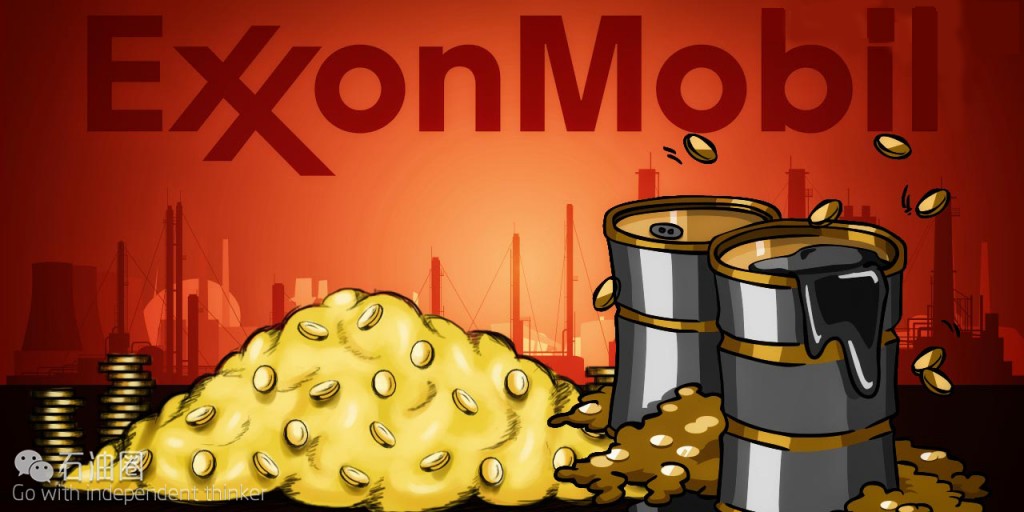
近日,埃克森美孚公司CEO Rex Tillerson表示,在未来数十年可能会在阿根廷的Vaca Muerta页岩区投资超过100亿美元。为什么阿根廷页岩区会有这么大的吸引力呢?石油圈为您整理了该投资的来龙去脉~
发生了什么:埃克森美孚或将投资超过100亿美元来开发大型Vaca Muerta页岩气藏。
为什么这么做:阿根廷的投资环境主要得益于去年选举出的保守党派、对金融行业情有独钟的总统。
接下来会如何做:私营部门对市场的信心有所改善,但是在长达十二年的民粹主义左派阶级统治之后,当前的管理部门想要让投资者信服该区能够成为投资热点,还需要一段很长的路要走。
随着埃克森美孚考虑在阿根廷进行新的大型油气田开发工作,新的保守派政府试图向投资者们证明阿根廷有能力支付所有资金。
埃克森美孚公司CEO Rex Tillerson在六月初对阿根廷进行调访的时候,阿根廷政府就已经欢呼雀跃了。Tillerson与政府的新总统Mauricio Macri、能源部长Juan Jose Aranguren进行了会谈,从他们的合影可以看出此次会谈相当成功。这一点也很好解释:2015年12月保守党派人物Macri开始执政,但在此之前为期一年的民粹党执政却用光了所有外资。他现在需要对连续五年暴跌的阿根廷经济力挽狂澜,减小通货膨胀并增加就业岗位,这些都是使他的党派同盟获得更多支持来维护政党稳定发展的关键因素。埃克森美孚就是下一个要加入开发商团队对全球页岩气“甜点区”Vaca Muerta进行开发的投资商。
投资潜力
Tillerson称埃克森美孚将在未来20-30年内投资100亿美元对两个相邻的气藏进行开发,目前已对这两个气藏投资了2亿美元进行勘探钻井。现在投资阿根廷是最佳时机吗?埃克森美孚认为的确如此,只要之前停止的页岩区试点结果表明大规模开采该区资源是可行的,那就没有任何问题。埃克森美孚与其子公司XTO能源将投资2.5亿美元共同合作进行Bajo del Choique和La Invernada区块的勘探开发,Tillerson称这些地区将在几个月后进行生产测试。这些区域钻探的水平井横向深度可达2500m,包括25个压裂段。鉴于XTO拥有加拿大和美国的专家,而加拿大和美国已经钻探了超过30000口非常规页岩气井,因此他们接管了这个项目。
根据阿根廷媒体的报道,Tillerson表示,“我对新政府执政后,阿根廷发生的变化非常乐观,因为这会明显改善市场投资环境。阿根廷对我们来说,是个非常重要的地区。”如果埃克森美孚准备在阿根廷投资100亿美元进行投资开发,那这个项目将是继雪佛龙投资160亿美元与阿根廷国家石油公司共同合作之后的最大的投资项目。Vaca Muerta每天可生产5万桶油当量的油气。马来西亚石油、壳牌、道达尔以及其他石油公司都曾对这个气藏进行了测试以及生产试验,但并未进行大规模生产。
改善关系
这其中有以下几方面的原因。首先,2007-2015年由民粹主义统治的阿根廷政府,总统Cristina Fernandez de Kirchner使阿根廷的经济和政治环境不断恶化。她通过干涉价格上限、高额税收、货币管理以及限制货币流通使国际间的商业贸易难以进行。更严重的是,2001年未解决的主权债务违约问题使阿根廷在获得项目融资上变的更加困难。
随着Macri上台,投资环境开始有所改善。他削减了出口税务,提高资本流动限制,这也就意味着公司可以多次进行跨国贸易,允许比索(阿根廷货币)贬值或是在一定范围内自由浮动。这些措施的综合效果就是为了降低高昂借款和通货膨胀率、改善国家财政、振兴国家经济。国际货币基金组织(IMF)在今年有1%的收缩后,将在2017年实现2.8%的增长。Macri表示将在今年下半年有好转的迹象,因为通货膨胀率目前的降幅接近40%,比2015年增加了26%。经济收缩、公共事业费上涨400-500%,加之高通货膨胀率使公众不满情绪高涨,联合工会举行多次抗议要求增加工资以维持大众的消费水平。即使Macri实施了一系列举措,许多人仍对他持怀疑态度。
Carlos Germanoy Asociados的政治评论员Carlos Germano表示:就公众的意愿来看,他们对市场环境改善的期许很大,超过60%的民众希望Macri的措施可以应对通货膨胀,也希望阿根廷的经济增长可以走上正轨。尽管Macri执政后,他的民众支持率由原来的65%有所下降,并且通货膨胀率仍旧很高、消费者的消费水平下降,但仍拥有53-54%的支持率。尽管这预示着他的政途前途良好,但是Germano也提醒道,如果Macri不能在下半年削减通货膨胀率并提高民众消费水平,到时候可就没有这么乐观了。Macri已经在采取措施提高消费水平,包括征得国会同意来向220万退休人员支付债务。Germano表示,随着消费水平的提高,人们对Mauricio Macri的认同感就会增强,但是如果他无法逆转目前的局面,那他的支持率就会下降。”
下一步计划是什么
随着巴西陷入经济、政治以及社会危机,如果Macri可以一直获得公众支持,那么阿根廷就可以加入国际投资的竞争行列。但是这还需要一步一步进行,Orlando J Ferreres & Asociados咨询公司的经济分析师Fausto Spotorno表示,“想要获得投资需要很长时间,会有不同方向的投资,而第一波投资浪潮应该是农业方面,第二波就是大项目了,即能源、油气方面。”他表示,将在今年下半年公共市场行情有所改善,年均工资有所增长,政府表示将限制燃料价格以及公共事业利率,以使零售行业有所起色。他还表示,“这将鼓励公司进行投资,但这并不是最终结果。” Aranguren在上周表示,增加并维持投资数量的关键是建立投资者对市场经济的信心,包括遵守条例并向投资者做出许诺,市场不会发生改变,另外一个关键因素就是合理的能源价格。
官方表示,过去15年对能源价格的限制使阿根廷失去了“油气自足”的优势。最近能源价格提高了500%,刚采出来的天然气价格翻了两倍,增长至143.83美元/千立方米,这在很大程度上刺激投资来重建能源供应体系。他还说道:“我们还要对开采油气需要的成本做出评估。”随着贸易环境的改善,Macri希望投资者们可以重获信心。他在上周的演讲中表示,“对市场的信心可以带来更多的投资和就业岗位,而这些也是目前阿根廷迫切需要的。”
来自/OilPro 译者/尉晶 编辑/Wang Yue
WHAT: ExxonMobil may invest more than US$10 billion on developing the giant Vaca Muerta shale play.
WHY: Argentina’s investment climate has been improving thanks to last year’s election of a conservative, probusiness president.
WHAT NEXT: Private sector confidence has improved, but after 12 years of populist left rule the current administration has a long road to travel before it can convincingly argue that the country is an investment hotspot.
The new conservative government’s efforts to convince investors of Argentina’s appeal could be about to pay off, with ExxonMobil considering a major new oil and gas development.
WHEN ExxonMobil’s chairman and CEO, Rex Tillerson, visited Argentina in early June, the government was jubilant. Tillerson met with the country’s new president, Mauricio Macri, and his energy minister, Juan Jose Aranguren, and the photos show eager smiles on all sides. There is good reason for this. Macri, a conservative businessman, took office in December 2015 after 12 years of populist-left rule had drained the country of a good deal of its foreign capital. He needs to reel in huge investments to pull the economy out of a five-year slump, cut double-digit inflation and create jobs, all of which are key to his young political coalition gaining the popular support needed to extend their policies – and survival. ExxonMobil could be the next in line to join a small group of developers to launch mass development at one of the world’s bright spots for shale, Vaca Muerta.
Investment potential
Tillerson said ExxonMobil could invest more than US$10 billion over the next 20-30 years in developing two adjacent blocks in the play, where it has already ploughed US$200 million into exploratory drilling. Is this the right time to invest in Argentina? ExxonMobil thinks so, as long as the results of its pending shale pilot show the resources are economically viable for mass production. ExxonMobil is working with its XTO Energy subsidiary on exploring the Bajo del Choique and La Invernada blocks, where Tillerson said a production pilot was poised to start in the next few months, with an investment of US$250 million. The horizontal wells will be drilled laterally for up to 2,500 metres and include 25 frac stages. XTO will handle the project, given its expertise in Canada and the US, where it operates more than 30,000 unconventional wells. “I’m very optimistic with the changes that have occurred here in Argentina with the new government,” Tillerson said, according to Argentine media reports. “It is clearly improving the investment climate. Argentina is a very important place for us.” If ExxonMobil moves forward with the US$10 billion-plus project it would be one of the biggest investments since Chevron announced a US$16 billion venture with Argentina’s state-run YPF. The pair are producing about 50,000 barrels of oil equivalent per day from Vaca Muerta. Petronas, Royal Dutch Shell, Total and others have been testing the play and doing production pilots, but have yet to move into mass production.
Improving relations
This is for several reasons. The first is that the economic and political climate soured under the previous government of President Cristina Fernandez de Kirchner, a left-of-centre populist who ruled from 2007 to 2015. Her interventionism through price caps, high taxes, currency controls and restrictions on bringing money in and out of the country made it difficult to plan business. What is more, an unresolved sovereign debt default from 2001 made it harder and costlier to obtain project financing. With the arrival of Macri, the investment climate has started to improve. His conservative administration has settled the remainder of the US$100 billion default, helping to widen access to global financial markets. He has also cut export taxes, lifted capital flow restrictions – companies can once again send dividends abroad – and allowed an overvalued peso to devalue and float freely. The combination is expected eventually to bring down lofty borrowing and inflation rates, improve state finances and revive the economy. The International Monetary Fund (IMF) projects 2.8% growth in 2017 after a 1% contraction this year. Macri has vowed that signs of improvement will start to appear in the second half of this year, led by a decline in the inflation rate that is now touching 40%, which is up from 26% in 2015. High inflation, coupled with the economic contraction and 400-500% hikes in public utility rates, has fuelled a rise in public discontent, with unions holding more protests to demand wage hikes to sustain consumer spending power. Even so, many people are still giving Macri the benefit of the doubt. “In terms of public opinion, the expectations for improvement are very high,” said Carlos Germano, a political analyst at Carlos Germano y Asociados. “More than 60% of the population expects Macri will beat inflation, and they expect that Argentina will get on track for faster growth.” While Macri’s approval rating is down from 65% in the days after taking office, it is still running high at 53-54% despite high inflation and a decline in consumer spending power, he added. While this bodes well for his political future, Germano warned that this optimism could be cut short if Macri failed to cut inflation in the second half and improve spending power. Macri is taking steps to revive consumer spending, including by seeking congressional approval for the state to pay debts to 2.2 million pensioners. “As consumer spending improves, people’s empathy with Mauricio Macri is going to continue,” Germano said. “But if he can’t [reverse] the decline in consumption, then his popularity will decline.”
What next
With neighbouring Brazil in an economic, political and social crisis, Argentina is a contender to pull in foreign investment if Macri can sustain public support. But it will be gradual. “It’s going to take more time for investments to come. There have been some investments, but the first wave will be in the agribusiness sector,” said Fausto Spotorno, an economist at consultancy Orlando J Ferreres & Asociados. “The second wave will be in big projects, in energy, oil and gas.” He said public sentiment should improve in the second half of this year. Annual wage hikes will kick in and the government has vowed to keep a lid on fuel prices and utility rates, which should revive retail sales. “This will encourage companies to invest,” he said. “But it’s not going to be one day to the next.” The key to speeding up and sustaining investment will be to rebuild investor confidence in the economy, including by complying with regulations and providing guarantees that they will not be changed, Aranguren said last week. Another key is for adequate energy pricing. By keeping a lid on energy prices over the past 15 years, the country lost its “self-sufficiency in gas and oil”, the official said. With the recent hikes of up to 500% in energy prices – and an almost two-fold increase in the average wellhead price of gas to 5.20 per million British thermal units (US$143.83 per 1,000 cubic metres), there are more incentives to invest in rebuilding energy supplies. “We have to give value to what we have by acknowledging the cost of producing it,” he said. With an improvement in the conditions for doing business, Macri expects investor confidence to recover. “And the confidence will bring investments and jobs,” he said in a speech last week. “This is what we need in Argentina.”
未经允许,不得转载本站任何文章:
-

- 甲基橙
-
石油圈认证作者
- 毕业于中国石油大学(华东),化学工程与技术专业,长期聚焦国内外油气行业最新最有价值的行业动态,具有数十万字行业观察编译经验,如需获取油气行业分析相关资料,请联系甲基橙(QQ:1085652456;微信18202257875)


 石油圈
石油圈
